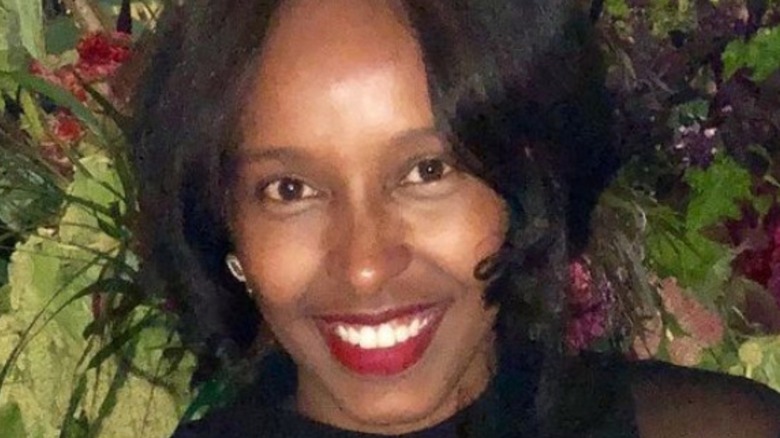Why Chef Hawa Hassan Thinks You Should Cook Like Your Grandma
Hawa Hassan's life story has all the makings of a big Hollywood production with Oscar written all over it. Per her Basbaas Food site, the Somali-born refugee came to the United States, landing in Seattle, all by herself at the age of 7. The oldest child of 10 was separated from her parents for 15 long years, but what sustained Hassan were the memories of cooking with her mother.
This love of cooking foods from her childhood with her mom inspired her to start her own company in 2014, producing two condiments, Tamarind Date Sauce and the Coconut Cilantro Chutney, both a nod to her Somali roots and whose flavors are reminiscent of Africa.
Hassan told Vanity Fair, "I was very strategic in terms of producing condiments first off. I really wanted to have a healthy conversation about my origins, and I wanted to introduce people to the cuisine of the continent of Africa. If I can get to their table, then they'll be interested in the larger picture." Today, her condiments — which are delicious — are in kitchens across the country, and Hassan has her very own cookbook that has both the culinary and mainstream media talking about it.
Titled "In Bibi's Kitchen," Hassan's cookbook is anything but what you would expect it to be and she is hoping that after you read it, you will want to cook like your own grandma — here's why.
Cooking doesn't have to be perfect
Hawa Hassan revealed in an interview with The Kitchn that her cookbook is not about the latest gadgets and trends that you see all over social media, and it isn't about the end result being picture-perfect.
Hassan eloquently explained, "Throughout the book every grandmother I spoke to had this feeling of cooking being joyful. There was no perfection attached to it. Food in the States — especially on social media — is all about the best picture, the most beautiful-looking recipe, the brightest turmeric cake. And in the cookbook, this is how these grandmothers really eat. It's about being relaxed enough to let the food go where it wants to go, you know?"
We love this philosophy. It is both encouraging and refreshing. Hassan further stressed in her interview that these foods are about community. This is seen in the featured recipes, which are both down-to-earth and affordable. They also reflect the flavors of the countries of all the "bibis" or grandmas with whom Hassan spoke. Her goal: "to build a longer table" and bring more and more people to it from different cultures and backgrounds. Hassan is truly inspiring, and we can't wait to dive deeper into "In Bibi's Kitchen."

